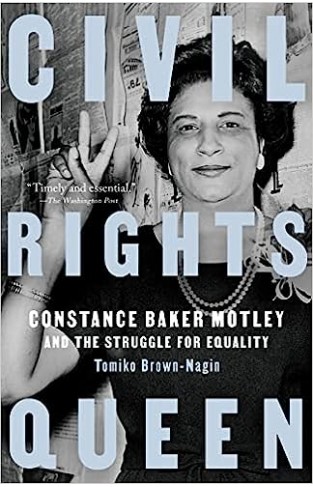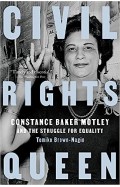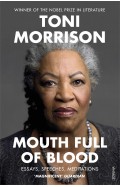- Home
- Books
- Categories
- Non Fiction
- History
- Civil Rights Queen - Constance Baker Motley and the Struggle for Equality
Civil Rights Queen - Constance Baker Motley and the Struggle for Equality
By: Tomiko Brown-Nagin
-
Rs 3,565.75
- Rs 4,195.00
- 15%
You save Rs 629.25.
Due to constant currency fluctuation, prices are subject to change with or without notice.
"A must-read for anyone who dares to believe that equal justice under the law is possible and is in search of a model for how to make it a reality." --Anita Hill <p/>Born to an aspirational blue-collar family during the Great Depression, Constance Baker Motley was expected to find herself a good career as a hair dresser. Instead, she became the first black woman to argue a case in front of the Supreme Court, the first of ten she would eventually argue. The only black woman member in the legal team at the NAACP's Inc. Fund at the time, she defended Martin Luther King in Birmingham, helped to argue in Brown vs. The Board of Education, and played a critical role in vanquishing Jim Crow laws throughout the South. She was the first black woman elected to the state Senate in New York, the first woman elected Manhattan Borough President, and the first black woman appointed to the federal judiciary. <p/>Civil Rights Queen captures the story of a remarkable American life, a figure who remade law and inspired the imaginations of African Americans across the country. Burnished with an extraordinary wealth of research, award-winning, esteemed Civil Rights and legal historian and dean of the Harvard Radcliffe Institute, Tomiko Brown-Nagin brings Motley to life in these pages. Brown-Nagin compels us to ponder some of our most timeless and urgent questions--how do the historically marginalized access the corridors of power? What is the price of the ticket? How does access to power shape individuals committed to social justice? In Civil Rights Queen, she dramatically fills out the picture of some of the most profound judicial and societal change made in twentieth-century America.
"A must-read for anyone who dares to believe that equal justice under the law is possible and is in search of a model for how to make it a reality." --Anita Hill <p/>Born to an aspirational blue-collar family during the Great Depression, Constance Baker Motley was expected to find herself a good career as a hair dresser. Instead, she became the first black woman to argue a case in front of the Supreme Court, the first of ten she would eventually argue. The only black woman member in the legal team at the NAACP's Inc. Fund at the time, she defended Martin Luther King in Birmingham, helped to argue in Brown vs. The Board of Education, and played a critical role in vanquishing Jim Crow laws throughout the South. She was the first black woman elected to the state Senate in New York, the first woman elected Manhattan Borough President, and the first black woman appointed to the federal judiciary. <p/>Civil Rights Queen captures the story of a remarkable American life, a figure who remade law and inspired the imaginations of African Americans across the country. Burnished with an extraordinary wealth of research, award-winning, esteemed Civil Rights and legal historian and dean of the Harvard Radcliffe Institute, Tomiko Brown-Nagin brings Motley to life in these pages. Brown-Nagin compels us to ponder some of our most timeless and urgent questions--how do the historically marginalized access the corridors of power? What is the price of the ticket? How does access to power shape individuals committed to social justice? In Civil Rights Queen, she dramatically fills out the picture of some of the most profound judicial and societal change made in twentieth-century America.
Civil Rights Queen - Constance Baker Motley and the Struggle for Equality
By: Tomiko Brown-Nagin
Rs 3,565.75 Rs 4,195.00 Ex Tax :Rs 3,565.75
Zubin Mehta: A Musical Journey (An Authorized Biography)
By: VOID - Bakhtiar K. Dadabhoy
Rs 892.50 Rs 1,050.00 Ex Tax :Rs 892.50
Mouth Full Of Blood: Essays, Speeches, Meditations
By: Toni Morrison
Rs 2,035.75 Rs 2,395.00 Ex Tax :Rs 2,035.75
Manning Up: How the Rise of Women Has Turned Men into Boys
By: Kay Hymowitz
Rs 845.75 Rs 995.00 Ex Tax :Rs 845.75
The Perfect Gentleman: A Muslim Boy Meets the West - [HB]
By: Imran Ahmad
Rs 1,447.50 Rs 2,895.00 Ex Tax :Rs 1,447.50
Mouth Full Of Blood: Essays, Speeches, Meditations
By: Toni Morrison
Rs 2,035.75 Rs 2,395.00 Ex Tax :Rs 2,035.75
No recently viewed books available at the moment.
Zubin Mehta: A Musical Journey (An Authorized Biography)
By: VOID - Bakhtiar K. Dadabhoy
Rs 892.50 Rs 1,050.00 Ex Tax :Rs 892.50
Civil Rights Queen - Constance Baker Motley and the Struggle for Equality
By: Tomiko Brown-Nagin
Rs 3,565.75 Rs 4,195.00 Ex Tax :Rs 3,565.75
Mouth Full Of Blood: Essays, Speeches, Meditations
By: Toni Morrison
Rs 2,035.75 Rs 2,395.00 Ex Tax :Rs 2,035.75














-120x187.jpg?q6)















![The Perfect Gentleman: A Muslim Boy Meets the West - [HB]](https://www.libertybooks.com/image/cache/catalog/the-perfect-gentleman-a-muslim-boy-meets-the-west-[hb]-9781455508495-120x187.jpg?q6)